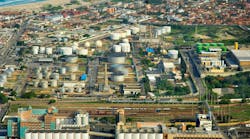I have been an avid and loyal reader of Oil & Gas Journal for virtually my entire career, which now approaches a half-century. During that time I have noted that the Journal routinely reflects the viewpoints and defends the causes of the energy companies. And understandably so. These companies supply the readers and sponsorships the Journal needs to survive.
I am pleased to note that opposing viewpoints are sometimes presented, for example in the Sept. 9, 2002, issue, p. 10. The letter from Debbie Miller opposing ANWR drilling reminds me of the arguments for using redwood trees as lumber for building cooling towers. Since then I have actually seen these trees and realize how near we came to losing these treasures for the sake of cooling towers, which by now would have been obsolete, outmoded and torn down. I have also seen enough oil fields to know that when an oil field moves in, natural beauty moves out.
In the same issue, Cal Hodge argues against ethanol. One of his contentions is that ethanol production is a net energy loss, although he qualifies this by admitting that there have been many "net energy" studies, often reflecting the bias of the sponsoring organization.
Hodge failed to point out that his Table 1 (plot of full life-cycle energy vs. time) exhibits an improving trend. In fact, for the first 12 years (1978-90) all data points were minus, and for the next 12 years (1990-2002) most data points were positive.
Two points. If the net energy is minus, so what? We trade an awkward energy (coal) for a useful one (electricity) at a net efficiency of about 33%, and we are glad do it. Second, if the military cost of ensuring our oil supply were factored in, how much would oil cost compared to home-grown ethanol? Now and after we spend $150 billion in Iraq.
Leo Schneider
Porter, Okla.
